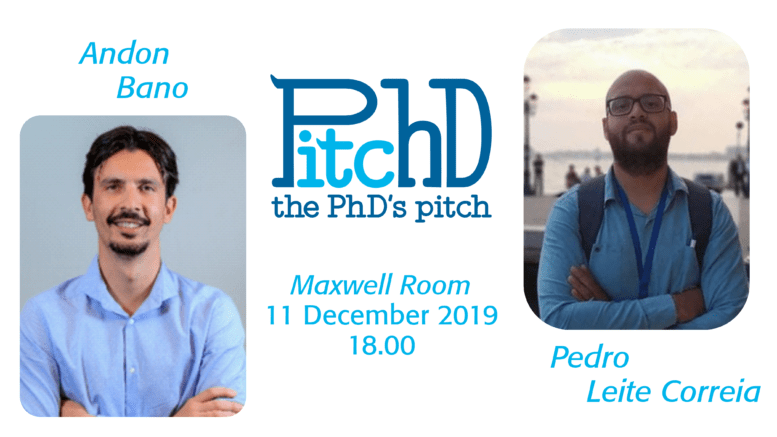11 December 2019 – 18.00
Politecnico di Torino – Maxwell Room
Here’s the first PitchD – the PhD’s pitch of the new 2020 edition. Our PhD IEEE Student Members explain to students, colleagues and professors their research. For the second event, two PhD students with an electronics background will show insight into their work. Join us to listen to their PitchD.
Use of Optical Fiber for Potable Water Monitoring
Mr. Andon Bano
Dept. of Electronics and Telecommunications (DET), Politecnico di Torino
Nowadays, optical fibers are quite well known for their great telecommunication capabilities, but recently they have gained a lot of attention for their sensing capabilities. Small size, high sensitivity, electromagnetic compatibility and the low cost are some of their most important key features and the main reason why so much research is going on in the field. My research focuses on plasmonic based optical fiber sensors aimed to monitor the quality of potable water. The plasmonic phenomenon allows an analysis based on stable high-resolution refractive index sensing. According to UN, more than 40% of the world’s population is affected by water scarcity problems, which in a lot of cases does not mean total lack of water, but rather means having not sanitized water supply. The necessity for monitoring the quality of such water before using (either for washing or drinking), is an emergency, and in most of the cases it needs to be done actively on the spot, in order to prevent the consumption. Plasmonic optical fiber sensors seem to be a very promising solution for such an emergent problem.
Nanoscale Digital-Based Analog Processing: How to Design Analog Building Blocks Using Only Digital Gates
Mr. Pedro Leite Correia
Dept. of Electronics and Telecommunications (DET), Politecnico di Torino
Universidade Federal do Rio Grande do Sul, Brazil
While digital Integrated Circuits (IC) have been taking the advantage of CMOS technology scaling in terms of speed, power consumption, and cost, the techniques running behind the analog signal processing are still lagging behind. In other words, it is clear that overtime there have been significant improvements (and it is expected to) in digital circuits performance when compared with analog building blocks. To mitigate this, there has been an increasing trend in finding alternative IC design strategies to implement analog functions exploiting digital-in-concept design methodologies. In addition to the advantage of using the well-established fully-automated EDA digital tools, the idea of re-thinking analog functions in digital terms would make the Analog IC blocks also suitable to avail energy efficiency and the feature-size shrinking of new technologies. In this context, this presentation will cover the current status of the state-of-art digital-based analog building blocks results including circuits such as OTA, comparators and converters, as well as their impact over the emerging applications and technologies. Put differently, are you a digital guy ? Would you like to know how to design OpAmp (analog stuff) only using logical gates ? This talk is for you.


Be the first to comment on "PitchD 2020 edition: the first PitchD"